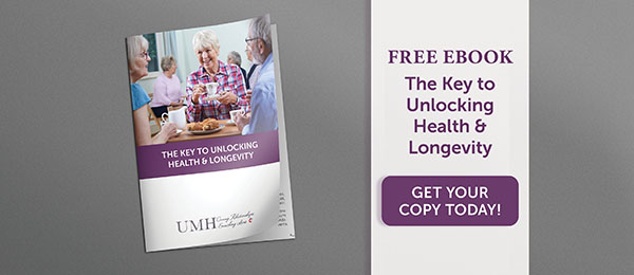Weed It and Reap: A Gardening Guide for Seniors
Whether you have never had a green thumb or dedicated your life to a multi-acre farm, gardening has something to offer everyone, especially older adults. In this article, we’ll discuss some of the many benefits gardening offers seniors, highlight important safety tips for creating an accessible garden, and share advice for getting your own garden started.
Benefits of Gardening for Seniors
Gardening offers a wealth of physical and emotional health benefits for seniors. Encouraging the older adult in your life to start and maintain a garden is a great way for them to incorporate exercise into their daily routine. What could be better than exercise that feels like fun!
Getting your hands dirty and soaking up the sunshine can help lower blood pressure, strengthen immunity, and improve sleep cycles. The movements associated with gardening can also help promote and maintain sensory awareness and motor skills, as well as strengthen and increase dexterity.
For emotional health, gardening can provide stress relief and reduce feelings of anxiety and agitation. Tending to plants grown with their own hands can give seniors a sense of purpose, an essential part of aging well. Additionally, a garden can also help to decrease isolation among older adults.
Having a hobby to bond with encourages closer friendships and stronger community ties. Research has repeatedly linked better health outcomes to human connection in seniors. While gardening can certainly be a solo activity if you prefer, inviting friends and family into your green space and enjoying it together, or working in a community garden, can add an even greater return.
Safety Tips for Senior Gardening
Just like everything else in life, safety in the garden is crucial. It’s often wise to consult a primary care physician before tackling anything more than light exercise in the garden. Even if you are sticking to light exercise, take the time to warm up before getting started. It’s especially important to stretch your hands, since you will be using them a lot. If you experience seasonal allergies, take any needed medication or eye drops before going outside or consider wearing a face mask if allergies are severe.
Once out in the garden, remember to stay hydrated and take frequent breaks. To make it easier to hydrate, have a water bottle on hand with you outside. Keep it in a cooler or a shady area or opt for an insulated option. Take breaks more often on warmer days and avoid gardening or being outside on very hot days.
Whether the sun is out or behind the clouds, be sure to use sunscreen and wear a hat that blocks the sun from your face. Remember, even on overcast and cloudy days, you can still become dehydrated and risk UV damage from sun exposure.
There is safety in numbers — keep a cellphone on hand, have someone regularly check on you, or garden with a partner. Don’t be shy about asking for help from family members or friends for difficult and strenuous tasks. You can even use these moments as an opportunity to bond with younger family members over a love of gardening.

Tools and Accessibility in Senior Gardening
Let your tools work for you. Choose lightweight tools you can carry easily and use without feeling discomfort or pain. Make sure they fit comfortably in your hand and are not too big or too small. Using the wrong tools can lead to injury so it is important that you pick good ones. Opt for materials like lightweight metal, wood, or rubber, as lightweight plastic tools can be prone to breaking.
Make your gardening hobby accessible for yourself. If you have arthritis, look for tools with grips designed for arthritic hands. Use garden kneelers or a stool to protect your knees from calluses and strains. Consider long-handled tools if reaching certain areas will pose a problem. Don’t feel like you have to break the bank— repurpose materials you already have, such as using old containers as planters.
Raised beds and container gardening can reduce the need for bending and kneeling. These methods of gardening can also help decrease the walking distance between you and the garden. Regardless of the type of gardening you undertake, make sure any pathways are even and kept free of debris.
For more ways to make your garden more fun and accessible, choose low maintenance and perennial plants, include labels and clear signage, and add comfortable outdoor seating.
Getting Your Garden Started
While an in-ground garden does not have to be out of the question for older adults, it’s best to start small, especially if you’re a beginner. Container gardening is a fantastic way for seniors of all skill levels to try their hand at growing things. As an added benefit, container gardens can be used outdoors or indoors, and all that is needed to start are pots, soil, and a sunny area.
The world of plants can be a bit overwhelming with all the varieties that exist. Wondering what to grow? Try springing for low maintenance plants like lavender, sedum, rosemary, marigolds, and daylilies. Aromatic and visually appealing plants like lamb’s ear, chocolate cosmos, and lemon balm are fun additions to senior gardens as well. For edible options, tomatoes, peppers, and cucumbers are good beginner crops. If your space is limited, opt for a compact variety well-suited for smaller areas.
When starting your garden, take note of your growing zone, which can help determine which plants will grow best in your climate. Look for plants that are native to your area as well. Not only do they provide critical food and shelter for insects and animals, they also are easy to care for since they are already adapted to your local environment. Seniors may especially enjoy designing a native garden, which can live on as their legacy.
Once your garden is planted and thriving, don’t forget to enjoy the fruits of your labor if you’ve planted anything that can be harvested. Growing some of your own food is a fun and delicious way to enjoy an extra nutritious meal.
Whether you are a beginner or a veteran, gardening is a wonderful senior-friendly hobby to consider. Looking to learn more about senior living options that offer indoor or outdoor space your senior loved one can enjoy? Contact us today or schedule a complimentary visit now.






